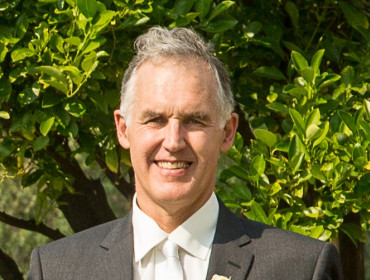The study overview
The authors of the study were seeking a way to benefit those who care for cancer patients, a task that can be very demanding and stressful. They chose as research subjects 44 carers aged 18 years and older with no significant medical or musculoskeletal problems. 22 received the massages while 22 were used as controls (to compare). Those massaged were given a fairly standard 15 minute manual back massage each day for a week. For scientific purposes the researchers needed to make sure any improvements were due to the massage alone. To do this physiological effects were minimised by having the therapists keep communications to a minimum, and non-aromatic baby oil was used to eliminate any aroma therapy effects. So they knew that any improvements were not due to the rest and relaxation while being massaged comparison group rested quietly in a silence room, and were not allowed anything that might affect the outcome such as music, television or exercising. The researchers used scientific questionnaires and measurements to measure anxiety levels, heart rate, blood pressure and sleep quality
The study results
Anxiety state
Anxiety levels were measured by two methods. The first was by using a scientific questionnaire where scores range from 0 to 80. Over the week the massage group improved from 49.68 to 45.68 while the control group actually worsened.
The second measurement was the level of a chemical called cortisol in the blood. This is significantly increased by psychological stressors, especially chronic stressful events. The authors noted that six previous reviews of the effect of massage on cortisol levels showed either small or non-significant improvements. However, this study achieved a very significant reduction. The researchers attributed this to providing multiple applications of therapy.
To quote the authors:
In this study, a decrease in cortisol levels after massage was not surprising because massage was applied in multiple doses as 15 minutes a day for one week, thus sustaining the effect of massage might be effective.
Blood pressure and heart rate
To quote the authors:
Our findings showed that both BP and HR, which are psychological indicators, significantly decrease by massage.
Sleep Quality
As measured by a questionnaire called the “Pittsburgh Sleep Quality Index” 77.3% of the subjects initially suffered from poor quality sleep. After the week this had reduced to only 63.6%, with average index scores also significantly reduced. Interestingly, as occurred with the anxiety state measurement the control group worsened. Maybe being involved in the trial created extra stress?
Conclusion
This simple intervention repeated over time was shown to produce excellent and worthwhile results. There were no pharmaceuticals involved, and no side effects. The trial only went for one week, so it can be speculated that continuing the intervention may have produced further improvements. Anxiety, high blood pressure and poor sleep can be a complex problem so it should be assessed professionally so a safe, comprehensive management plan can be determined. Regular massages may help. Such regular massages if done professionally would be prohibitively expensive, but practically unlimited quality massages can be received at home using our DrGraeme massagers with professional advice. Massages can usually be combined with other forms of therapy such as exercise, relaxation and psychological counselling.
Reference
Pinar R1, Afsar F. Back Massage to Decrease State Anxiety, Cortisol Level, Blood Prsessure, Heart Rate and Increase Sleep Quality in Family Caregivers of Patients with Cancer: A Randomised Controlled Trial. Asian Pac J Cancer Prev. 2015;16(18):8127-33
Further related studies
Study one (Katz 1999)
Staff at a large teaching hospital were given eight 15 minute sessions of Swedish massage. Compared with the controls the experimental group showed significant reductions in pain and tension, and an improved mood.
Study two (Narazi 2015)
Intensive care nurses were given a 25 minute session of Swedish massage twice a week for 4 weeks. Compared with the controls the experimental group showed a significant reduction in stress levels. This was still apparent two weeks after the intervention ceased.
Study three (Engen 2012)
Nurses were given a 15 minute chair massage each week for 10 weeks. Their stress related symptoms reduced significantly, and interestingly 60% were willing to pay $10-25 for a 15 minute massage at work if available.
Study four (Bost 2006)
Nurses received a 15 minute Swedish back massage once a week for 5 weeks. Anxiety levels were significantly reduced as compared to controls.
Study five (Shulman 1996)
Employees of a large company experiencing downsizing were given a 15 minute chair massage each week for six weeks. A significant reduction in anxiety was achieved.
References
Šiško, P.K., Videmšek, M. and Karpljuk, D., 2011. The effect of a corporate chair massage program on musculoskeletal discomfort and joint range of motion in office workers. The Journal of Alternative and Complementary Medicine, 17(7), pp.617-622.
Katz, J., Wowk, A., Culp, D. and Wakeling, H., 1999. A Randomized Controlled Study of the Pain-and Tension-Reducing Effects of 15 Min Workplace Massage Treatments Versus Seated Rest for Nurses in a Large Teaching Hospital. Pain Research and Management, 4(2), pp.81-88.
Nazari, F., Mirzamohamadi, M. and Yousefi, H., 2015. The effect of massage therapy on occupational stress of Intensive Care Unit nurses. Iranian journal of nursing and midwifery research, 20(4), p.508.
Engen, D.J., Wahner-Roedler, D.L., Vincent, A., Chon, T.Y., Cha, S.S., Luedtke, C.A., Loehrer, L.L., Dion, L.J., Rodgers, N.J. and Bauer, B.A., 2012. Feasibility and effect of chair massage offered to nurses during work hours on stress-related symptoms: a pilot study. Complementary Therapies in Clinical Practice, 18(4), pp.212-215.
Bost, N. and Wallis, M., 2006. The effectiveness of a 15 minute weekly massage in reducing physical and psychological stress in nurses. Australian Journal of Advanced Nursing, The, 23(4), p.28.
Shulman, K.R. and Jones, G.E., 1996. The effectiveness of massage therapy intervention on reducing anxiety in the workplace. The Journal of Applied Behavioral Science, 32(2), pp.160-173

